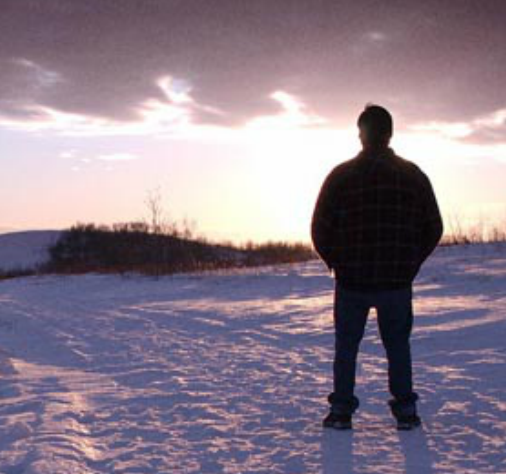The Centre for American Studies welcomes Canadian film maker and lecturer, Tasha Hubbard on Monday 11 July (1-3pm in GLT3) for a screening of her documentary Two Worlds Colliding.
Hubbard’s 2005 documentary chronicles the story of Darrell Night, an Indigenous man who was dumped by two police officers in a barren field on the outskirts of Saskatoon in January 2000, during -20° C temperatures. He found shelter at a nearby power station and survived the ordeal, but he was stunned to hear that the frozen body of another Indigenous man was discovered in the same area. Days later, another victim, also Indigenous, was found.
This film is an inquiry into what came to be known as Saskatoon’s infamous ‘freezing deaths’ and the schism between a fearful, mistrustful Indigenous community and a police force that must come to terms with a shocking secret.
Following the screening, Tasha Hubbard will discuss how Patrick Wolfe’s “logic of elimination” plays out in the prairie city of Saskatoon. North American settler colonialism is predicated on the disappearance of Indigenous peoples, both historical and on-going. The destruction of the buffalo allowed Canadian forefathers to use a starvation policy to clear Indigenous peoples from the land, specifically in the prairies. Despite being confined to reservations throughout the early part of the 20th century and forced into assimilative and abusive residential schools, Indigenous people continued to fight to exist. When some of these oppressive laws were eventually lifted, Indigenous peoples migrated to urban centres like Saskatoon in the 1960s and 70s to find work and pursue education. Settler colonialism adapted with new tactics, such as police taking Indigenous peoples to the outskirts of the city, often in the depths of winter.
The film Two Worlds Colliding (2005) chronicles the discovery of this practice in Saskatoon through interviews with the police themselves, the families left behind, and a lone witness. Also related to the notion of disappearance are the 1700 missing and murdered Indigenous women in Canada. While activists and communities have called for action by governments and police forces, their cries were met with willful deafness until this past year.
Hubbard’s earlier short film 7 Minutes (recent recipient of Best Short Non-Fiction at the Golden Sheaf Awards) shows the atmosphere of potential harm that young Indigenous women on the prairies must live with on a daily basis.
Tasha Hubbard is Assistant Professor in the Department of English at the University of Saskatchewan. She teaches indigenous literatures, as well as classes in first-year English as part of the Aboriginal Student Achievement Program. Her current film and academic work focuses on Indigenous creative representation of the Buffalo and on recovering historic Indigenous stories. She is an award-winning documentary filmmaker; her solo writing/directing project Two Worlds Colliding (2004) won a Canada Award at the Geminis and a Golden Sheaf Award and she recently released the animated short film Buffalo Calling, 2013.

